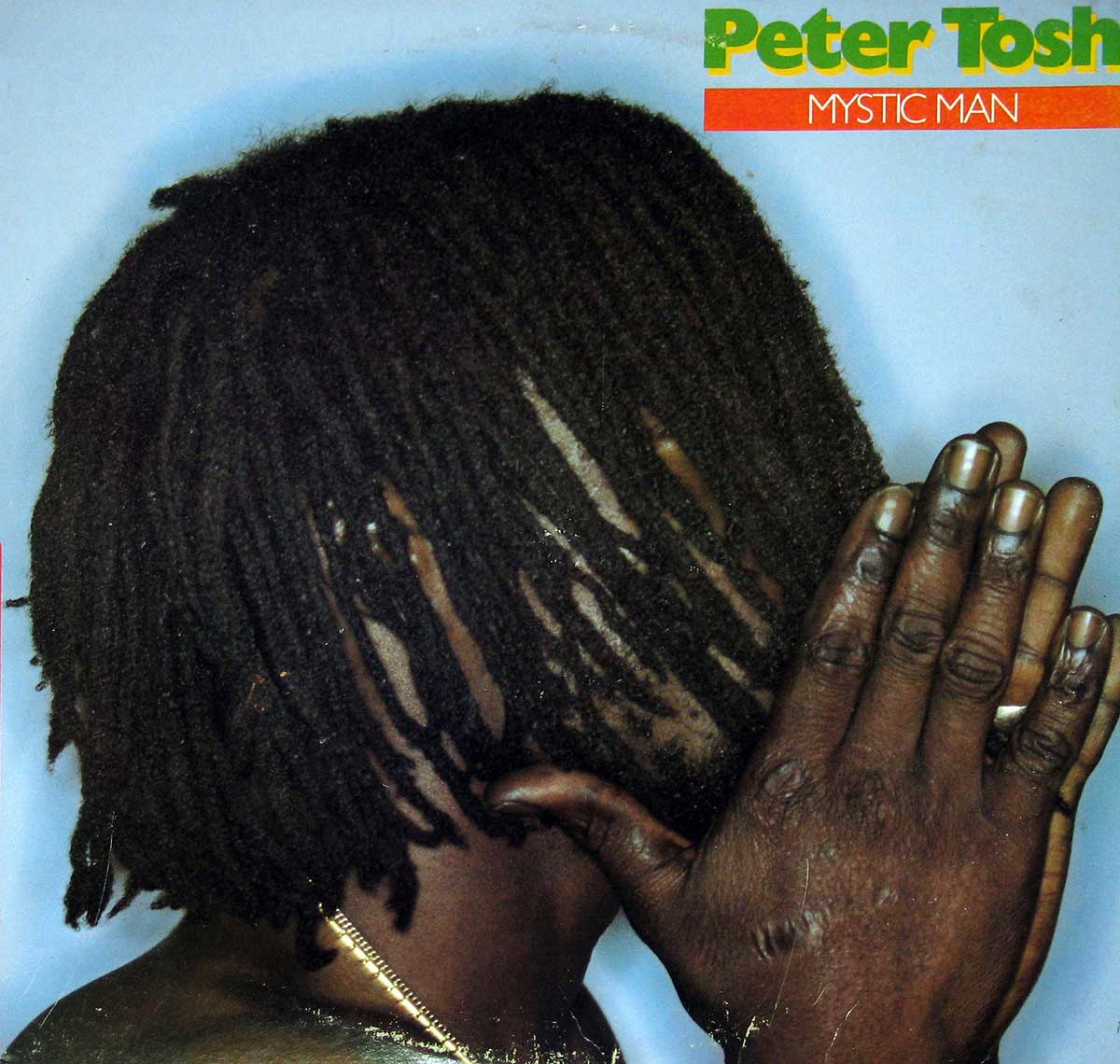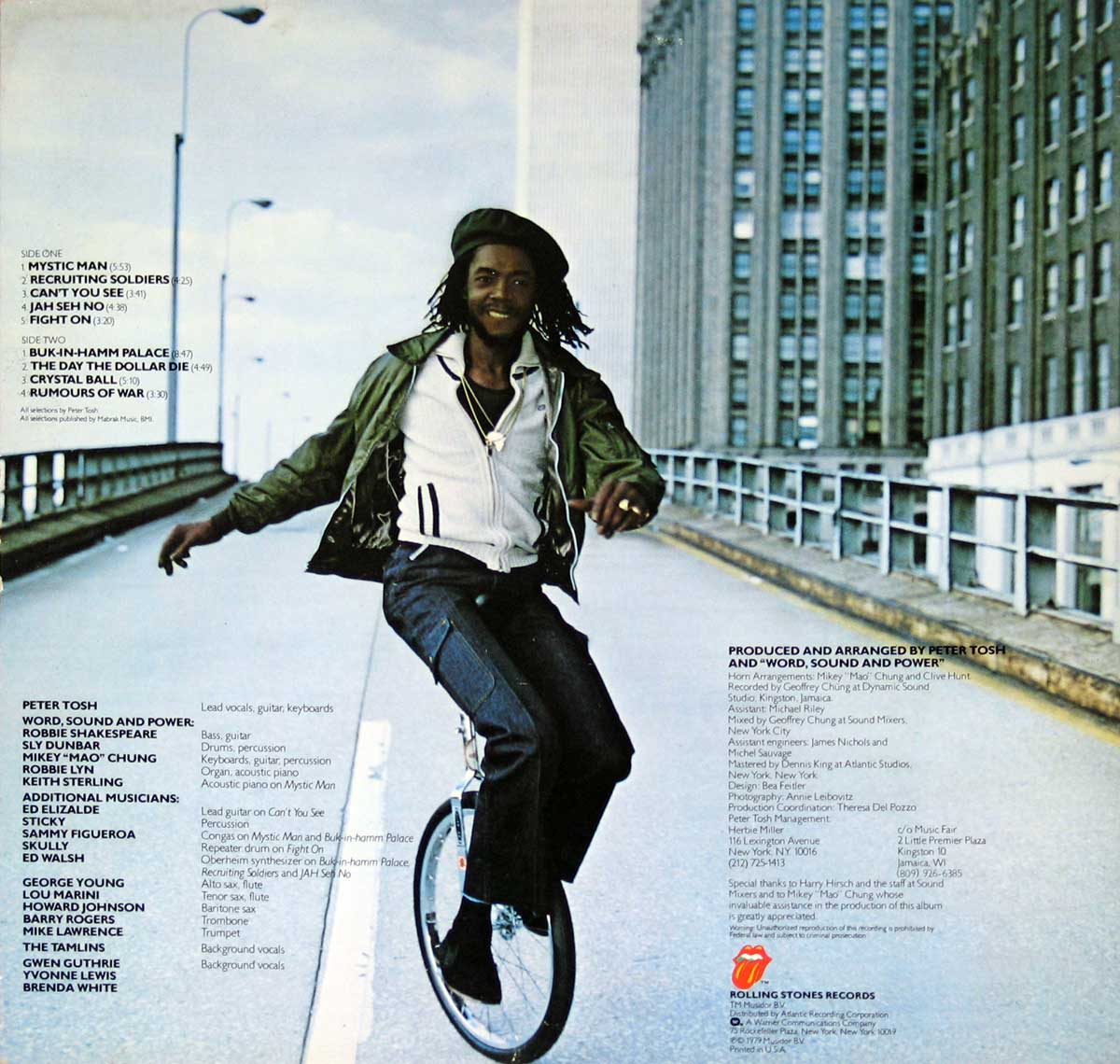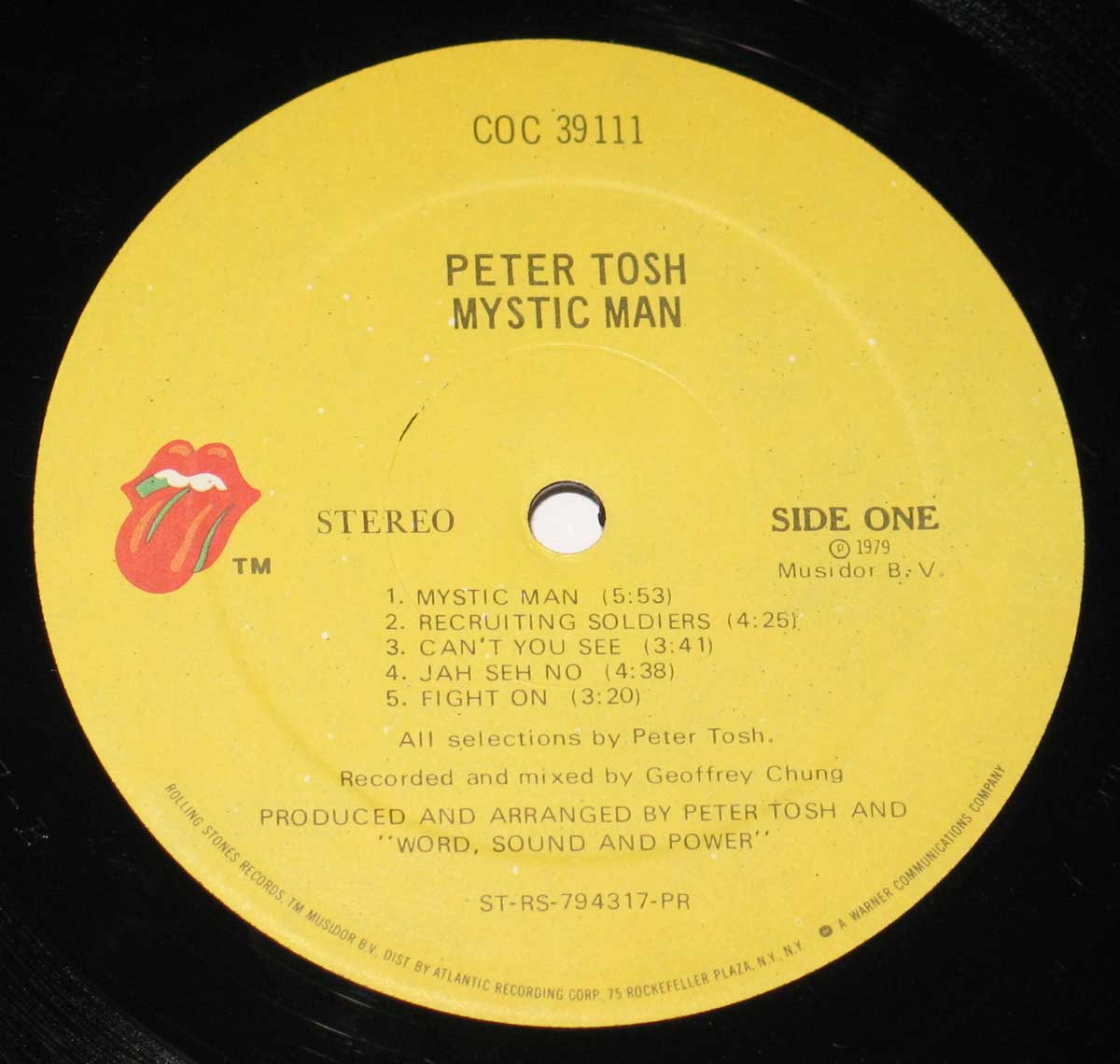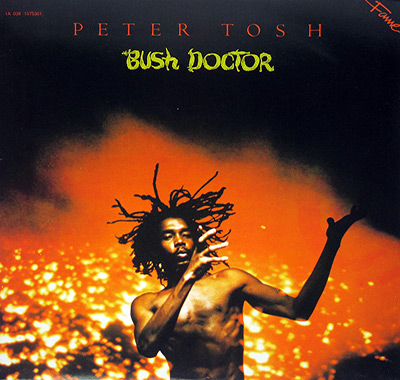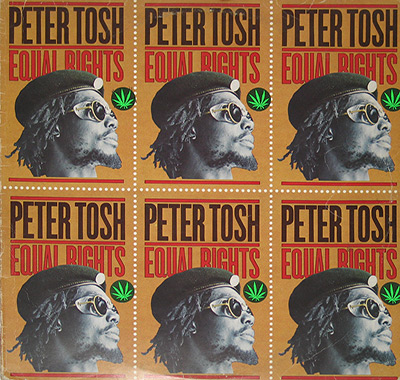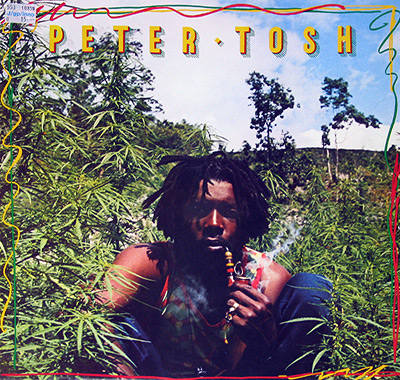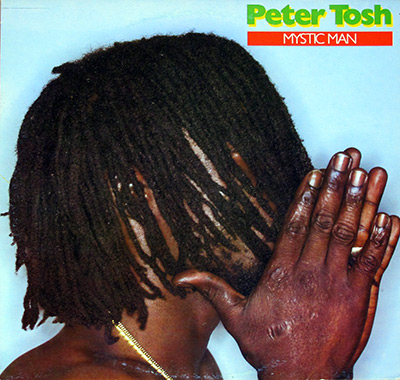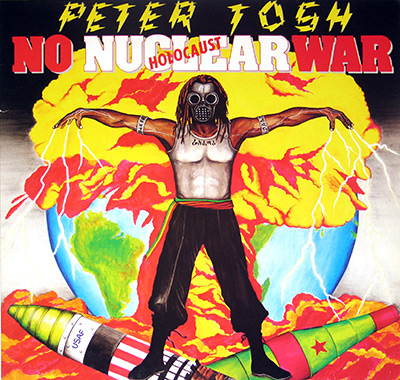"Mystic Man" Album Description:
The release of Peter Tosh's "Mystic Man" 12" Vinyl LP in the USA marked a significant contribution to the reggae music scene during its time period. Examining the album's production, packaging, and the notable individuals involved sheds light on its importance within the broader context.
Production and Producers:
Peter Tosh, a reggae icon and one of the Wailers, took on the role of producer for the "Mystic Man" album. His involvement in the production process not only showcased his musical talent but also highlighted his creative control over the artistic direction of the album. The collaboration with Word, Sound and Power (comprising Keith Sterling, Mikey Chung, Robbie Lyn, Robbie Shakespeare, and Sly Dunbar) further enriched the sonic landscape, contributing to the distinct reggae sound of the album.
Recording Location:
The choice of Dynamic Sound Studio in Kingston, Jamaica, as the recording location is noteworthy. Kingston has long been regarded as the heart of reggae music, and recording at Dynamic Sound Studio added authenticity to the album. The studio's history and association with other prominent reggae artists contributed to the overall significance of the "Mystic Man" release.
Album Packaging:
The album packaging, including the original custom inner sleeve with complete lyrics, was an essential aspect of the "Mystic Man" LP. In an era where vinyl records were a dominant medium for music consumption, the inclusion of lyrics added value for listeners, allowing them to engage more deeply with the songs. The album cover design by Bea Feitler showcased a thoughtful and visually appealing representation of the mysticism embedded in Tosh's music.
Photography:
Annie Leibovitz, a renowned photographer, lent her talent to capture the essence of Peter Tosh for the album. Leibovitz's work has transcended genres, and her collaboration with Tosh on the "Mystic Man" LP contributed to the visual storytelling of the reggae artist's persona. The photography added a layer of professionalism and artistry to the overall presentation of the album.
